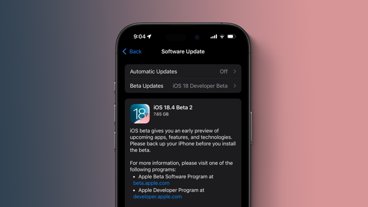The US Court of Appeals will now hear from Apple and Epic Games, both of which are appealing against aspects of the antitrust rulings from their previous App Store lawsuit.
Apple chiefly won its case against the "Fortnite" games developer. The company objects to certain details of the ruling.
Specifically, Apple opposes the "anti-steering" aspects of the decision. Apple says that Epic didn't produce enough evidence to prove the ruling, and as such, that aspect should be tossed.
For its part, Epic maintains that the overall ruling was flawed.
Epic's appeal filing claims that "Apple unlawfully maintains its monopolies in the iOS app distribution and in-app payment solutions markets by expressly excluding all competitors." However, during the trial, Judge Roberts didn't define the market the same way that Epic does here or the wider definition that Apple wants. It isn't clear why Epic is leaning on their definition in the appeal filing, given the ruling and prior precedent in similar matters.
Now according to FOSS Patents, the appeals hearing will be held on Friday, October 21, 2022. It will be heard in Courtroom 3 of the James R. Browning US Courthouse in San Francisco.
No scheduled time has been announced, but the court's docket has Epic Games versus Apple as its fifth case of the day. The format for the appeals court sees each side being given 20 minutes to make their case.
According to FOSS Patents, it's possible that other interested parties may ask to participate in this oral presentation. That could include some representation from the DOJ and 34 states that have told the appeals court that Apple continues to "stifle competition."
 William Gallagher
William Gallagher








 Christine McKee
Christine McKee
 Marko Zivkovic
Marko Zivkovic
 Mike Wuerthele
Mike Wuerthele

 Amber Neely
Amber Neely
 Sponsored Content
Sponsored Content
 Wesley Hilliard
Wesley Hilliard









4 Comments
IMO, Apple is right about the anti-steering aspect of that ruling. If Epic says that they suffered harm then they should be required to provide evidence of that harm in court.
AppleInsider
They keep using that word. I don't think it means what they think it means.
And, judging by the above account, neither does the judge.
App,e could disband the AppStore. This will mean people will have to sell their soft ware to the retail channel. Which shipping will bring up the cost. They will have to pay for shipping to the retail channels. And they will have to maintain inventory skus. Etc. So, in my opinion, the 30% is not expensive